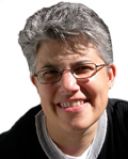Wisdom
A Matter of Faith
How could the God I knew have allowed this to happen to me?
Posted October 13, 2011
When I was growing up my father taught me a lot of things: some good, many bad. I was raised Catholic and one of the good things he taught me was about the hierarchy of respect that was closely tied to the hierarchy of wisdom.
First, we were to respect our parents. I knew without him having to spell it out that he really meant for me to respect him, not so much my Mom.
Second, he taught me that we were to respect and revere our elders, like our neighbor-a 72-year-old woman from Central America. "She has lived a long life and in her wrinkled skin and grey hair is experience and wisdom. You should learn from the wisdom of others."
Third and finally, we were to respect our religion and our religious leaders: the priests and nuns at our church and our school. "They know God's will. That is the most important thing to live by. What God wants for us is critical and those closest to God will guide us to live his plan." Hierarchies are easily grasped by children, so with these instructions, I went along categorizing my world and its lessons according to the proper weight they deserved.
When my wise neighbor told me that God would hate the things my father was doing to me, I paid close attention and believed her. My father regularly beat me and my brothers and sexually abused me. When she neighbor taught me to pray the rosary, I took it everywhere and it comforted me.
When the nuns in school told me God loved me, I believed them. I went to confession on Saturday and church on Sunday according to their instructions. When I didn't know what to confess, not being sure what qualified as a sin, I would say "I had impure thoughts." I had no idea what "impure" meant; it was just something the nuns said we could say.
Dutifully, I loved God and prayed every day, several times a day. I wore my cross and saint metals. I collected prayer cards and read and re-read the teachings from each mass. I listened to homilies carefully, trying to figure out what God wanted me to know. In church my thoughts were unforgiving about others who talked during the service. They are not listening to God's words. If they don't stop, they will not go to heaven.
God had set rules for us to follow so that we clearly understood what it would take to get to heaven and how you could end up in Hell. I was afraid to do anything wrong for fear of angering God. I loved Him and wanted to be close to Him. At that age I wasn't sure what might cause God to send me to Hell, so I didn't take any chances; I worked really hard to follow all the rules. I wanted to go to heaven.
I followed all the rules and I thought that would protect me. When I was seven I made my first communion. I was confirmed and later married in the Catholic church.
In my thirties, when I first began to recall all the abuses I suffered at the hands of my father, my first thought was God must be punishing me. I carefully retraced my childhood spent faithfully following His rules and couldn't figure out what I had done to deserve it. My thoughts spun. It didn't add up. "How can this be possible? I did everything I was supposed to do. How could the God I knew have allowed this to happen to me?" I couldn't understand. Angry and grieving, I stopped praying. I stopped going to church.
Months into my crisis of faith, I mentioned my struggle to my psychiatrist. I no longer had faith that God had a plan for me. I no longer believed that he loved me and rewarded me for following his rules. Dr. Summer understood and had been waiting for me to raise the issue. But he challenged my thinking. "What do you think God should have done that he didn't do? Was He supposed to stop your father? Was He supposed to make your mom do something to stop him?"
I sat there and thought. Is that how I was taught? Does God move people around like chess pieces on a board? I honestly didn't know anymore. The teachings had all seemed so clear before. "I don't know. I just know I followed all the rules and this shouldn't have happened."
"What is free will?" He asked me.
I sat there silently, angry at God and confused about what I believed.
He rephrased the question. "Do you think people can do whatever they want?"
"I guess they can. But then what does God do?"
"Well, what do you think he does?"
"I don't know." I sat there again, confused and deep in thought. Is it possible that what happened to me wasn't God's fault?
"Well, how do you think you survived?"
"I was strong. I had great people that helped me. I split off into parts."
"Do you think you were alone in all that?"
I sat and wondered about it all. This thinking went beyond my simple rules. Then I remembered my religion classes in fourth grade I had learned then that God came to us in people. If we opened our hearts to those around us, we could see God in them. I thought of my neighbor, the woman who ran our community center, my second grade teacher, the nuns at the convent and all the people who were kind to me and who helped me. All those people saved me. Was that God?
I answered my own question. I had the strength, thank God, to get through it all. These wonderful people came into my life, thanks to God, and saved me. I was overcome with emotion. I cried and again felt the power of God in my heart and in my life. In the following weeks, Dr. Summer and I talked more about my anger at God, and my thinking evolved. I saw Him in the people who through their simple acts of kindness saved me.
Olga's memoir The Sum of My Parts: A Survivor's Story of Dissociative Identity Disorder was just released by New Harbinger Publications.
To learn more about Olga and her work visit www.olgatrujillo.com




